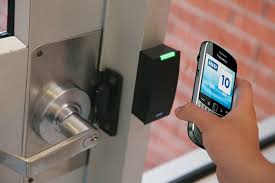
Access Control Security Systems in Centennial, CO
One of the main reasons for installing an access control security system in Centennial is to maintain business compliance regulations. For example, doctors' offices, hospitals and medical insurance companies require the security of a Centennial access control system to make sure they comply with HIPAA regulations.
- IP Access Control Security Systems in Centennial, CO - IP data is a sensitive intellectual property that requires pharmaceutical companies, software developers, startups and entrepreneurs to have an access control system to control who enters specific buildings.
- SOC and SOC2 Compliant Access Control Systems in Centennial - SOC and SOC2 are a set of standards created by the American Institute of Certified Public Accountants (AICPA). These provide an assessment of a company’s cybersecurity controls. Because of the growing reliance on cloud-based services and data retention, any business that wants to keep up with SOC or SOC2 cybersecurity standards needs an access control security system.
Components of Physical Access Control Systems in Centennial
Access control systems can effectively integrate with a variety of equipment. Still, a physical access control system has four fundamental elements:
- Access control barrier
- An electronic device for identification and verification
- A panel that manages the access control barrier
- A structure that connects and communicates with these components and links the ACS with reaction elements
Access control barriers in Centennial are physical devices that could be drop or wedge arm barriers, turnstiles, portals or facilities for guards. Verification equipment might be a card reader or biometric scanner, which could examine an individual's retina or fingerprints. Reaction elements are alarms that notify through audible or visual means when an unauthorized entry has occurred.
Types of Logical Access Control Security Systems in Centennial, CO
Logical access control security systems can be categorized as one of the four models below:
- Mandatory access control (MAC): In MAC systems, each object is assigned a specific classification and clearance level—allowing for an ACS to have varying degrees of permission. Government and military facilities often use MAC because, in the current market, it is considered the most secure.
- Attribute-based access control (ABAC): With this type of ACS, different systems, various users, and certain environmental conditions combine to create a multifunctional grouping of policies and rules which determine if access is granted.
- Discretionary access control (DAC): It is the responsibility of the DAC system administrators and owners to develop a decentralized plan that defines the rights of a subject for each object. Because permission rules are at the owner's discretion, many believe it makes the DAC system less effective.
- Role-based access control (RBAC): This ACS only gives employees access based on their assigned roles and limits them to the materials needed for completing their tasks; everything else is restricted. RBAC systems help companies restrict privileges of third parties or other contractors they may work with throughout the year.
You may choose a combination of various features of access control systems in Centennial by comparing systems

Not Your Area? We also service..
What Our Customers Say
One phone call takes care of any issue we have. We had a difficult time figuring out the best way to secure everything in-house. Outsourcing has been much simpler and more secure. Love the service
We wanted to have a simple 4 digit key code for our office and found a great deal! Highly recommend
Save up to 25% on access control systems!